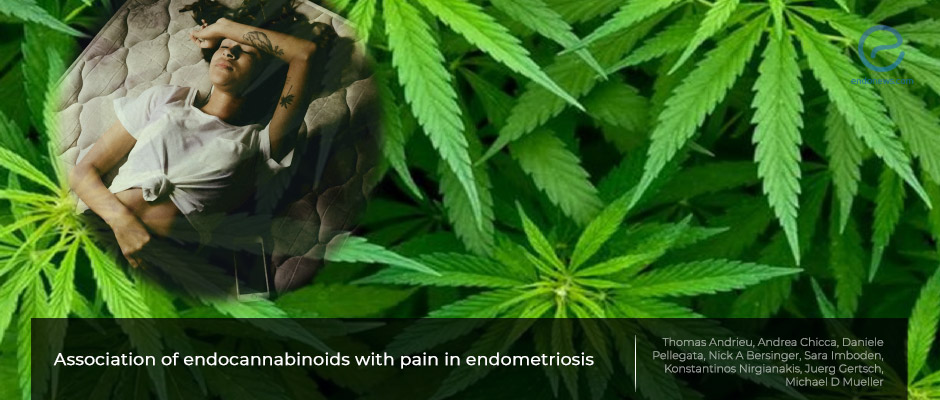Endogenous cannabinoids are related to endometriosis pain
Oct 21, 2021
The endocannabinoid system is significantly influenced by inflammatory pain in endometriosis, study suggests
Key Points
Highlights:
- There is a possible link between the endocannabinoid system and endometriosis-associated pain.
Importance:
-
The complex endocannabinoid system regulates a range of functions including sleep, mood, appetite, memory, and reproduction, also may play a role in endometriosis-associated pain through the modulation of inflammation.
What’s done here:
- This is a case-control study on 23 women with endometriosis compared to 19 controls to assess endometriosis-associated pain and the endocannabinoid levels in serum and peritoneal fluid.
- Endocannabinoids, inflammatory markers, serum, and peritoneal fluid lipidomics, in different phases of the menstrual cycle, were assessed.
Key results:
- The peritoneal fluid levels of 2-AG, AEA, and related lipids were higher than the serum which suggests a local production.
- 2-AG correlates positively with dysmenorrhea and abdominal pain scores and emerges as a possible marker of pain in the peritoneal fluid.
- Elevated 2-AG and PGE2 levels may have a role in mediating the sensation of pain.
Limitations:
- The storage and circadian rhythm can affect the level of endocannabinoids over time, the small number of patients
- The sensitivity of the data related to serum PGD2, PGE2, and corticosterone, and pleural fluid corticosterone
Lay Summary
Pain, specifically dysmenorrhea is the most important symptom of endometriosis. Prostaglandins are the main director of the pain process in dysmenorrhea, therefore the mechanisms affecting the prostaglandin metabolism have been studied in order to find a treatment for pain, and found that in primary dysmenorrhea, the pain originates from the released prostaglandins at the beginning of the menses, leading to abnormal uterine contractions.
Cannabinoids are compounds found in cannabis. Two key endogenous cannabinoids in tissues, anandamide (AEA) and 2-arachidonoylglyerol (2-AG) are similar to cannabinoids, but produced by your body; and the endocannabinoids system is active in our body even if we don’t use cannabis. Endogenous cannabinoids are important molecules in the arachidonic acid mechanism, hence in prostaglandin production. The endocannabinoid system has a potential role in pain modulation, immune response, and proliferation in endometriosis, therefore it might be a possible treatment target in endometriosis. Although prostaglandins have an important role in pain treatment, relation and alterations with endocannabinoids are poorly studied in endometriosis.
Andrieu et al. from Bern, Switzerland, have performed a case-control study to understand if the endocannabinoids were associated with pain and inflammation in endometriosis patients. Serum and peritoneal fluid endocannabinoid and metabolite levels of 23 endometriosis patients and 19 controls were quantified and assessed. Several lipids and inflammatory markers, as well as AEA and 2-Ag, were examined and compared. The study was published in a recent issue of the journal "PAIN".
The levels of 2-AG and PGE2 were found to be higher in the proliferative phase of the menstrual cycle. Dysmenorrhea was significantly associated with higher 2-AG and lower AEA levels. The levels of AEA were reduced in patients suffering from dyspareunia. Furthermore, 2-AG levels were positively correlated with the prostaglandins, and the ratio AEA/2-AG positively correlated with inflammatory markers called defensins.
Based on these findings, the authors suggest a possible link between the endocannabinoid system, 2-AG in particular, and endometriosis-associated pain, and state that further investigations are needed on the clarification of this subject.
Research Source: https://pubmed.ncbi.nlm.nih.gov/34001768/
endometriosis abdominal pain dysmenorrhea peritoneal fluid endocannabinoids 2-AG AEA

